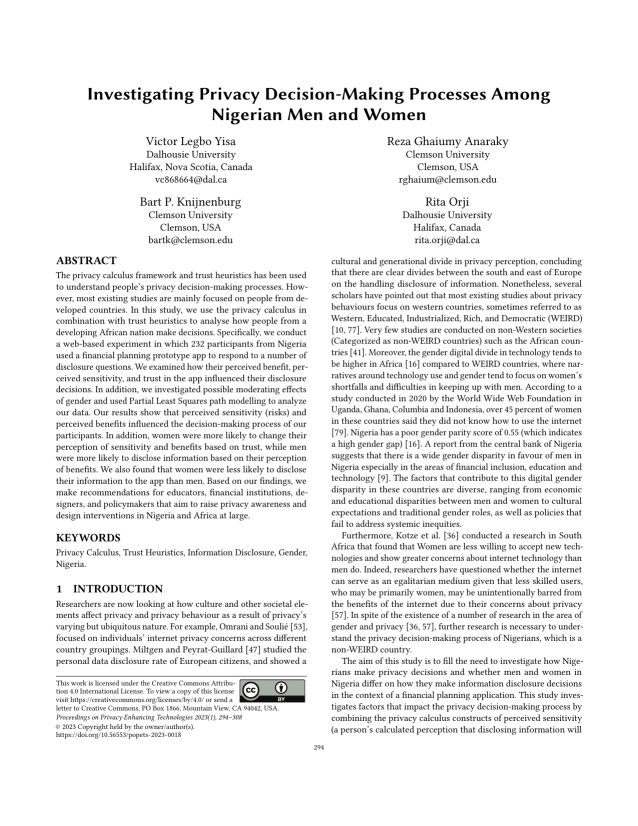Investigating Privacy Decision-Making Processes Among Nigerian Men and Women
Authors: Victor Yisa (Dalhousie University), Reza Ghaiumy Anaraky (Clemson University), Bart P. Knijnenburg (Clemson University), Rita Orji (Dalhousie University)
Volume: 2023
Issue: 1
Pages: 294–308
DOI: https://doi.org/10.56553/popets-2023-0018
Abstract: The privacy calculus framework and trust heuristics has been used to understand people’s privacy decision-making processes. However, most existing studies are mainly focused on people from developed countries. In this study, we use the privacy calculus in combination with trust heuristics to analyse how people from a developing African nation make decisions. Specifically, we conduct a web-based experiment in which 232 participants from Nigeria used a financial planning prototype app to respond to a number of disclosure questions. We examined how their perceived benefit, perceived sensitivity, and trust in the app influenced their disclosure decisions. In addition, we investigated possible moderating effects of gender and used Partial Least Squares path modelling to analyze our data. Our results show that perceived sensitivity (risks) and perceived benefits influenced the decision-making process of our participants. In addition, women were more likely to change their perception of sensitivity and benefits based on trust, while men were more likely to disclose information based on their perception of benefits. We also found that women were less likely to disclose their information to the app than men. Based on our findings, we make recommendations for educators, financial institutions, designers, and policymakers that aim to raise privacy awareness and design interventions in Nigeria and Africa at large.
Keywords: Privacy Calculus, Trust Heuristics, Information Disclosure, Gender, Nigeria
Copyright in PoPETs articles are held by their authors. This article is published under a Creative Commons Attribution 4.0 license.

